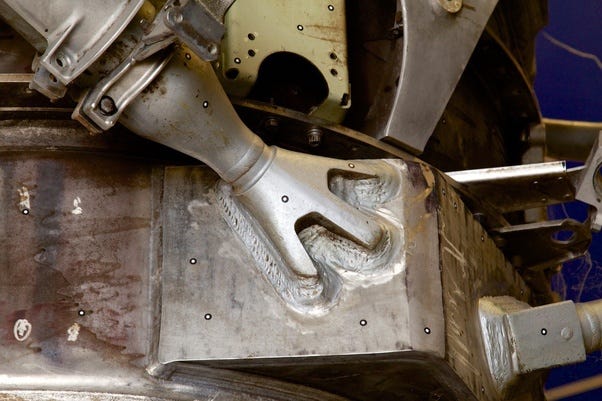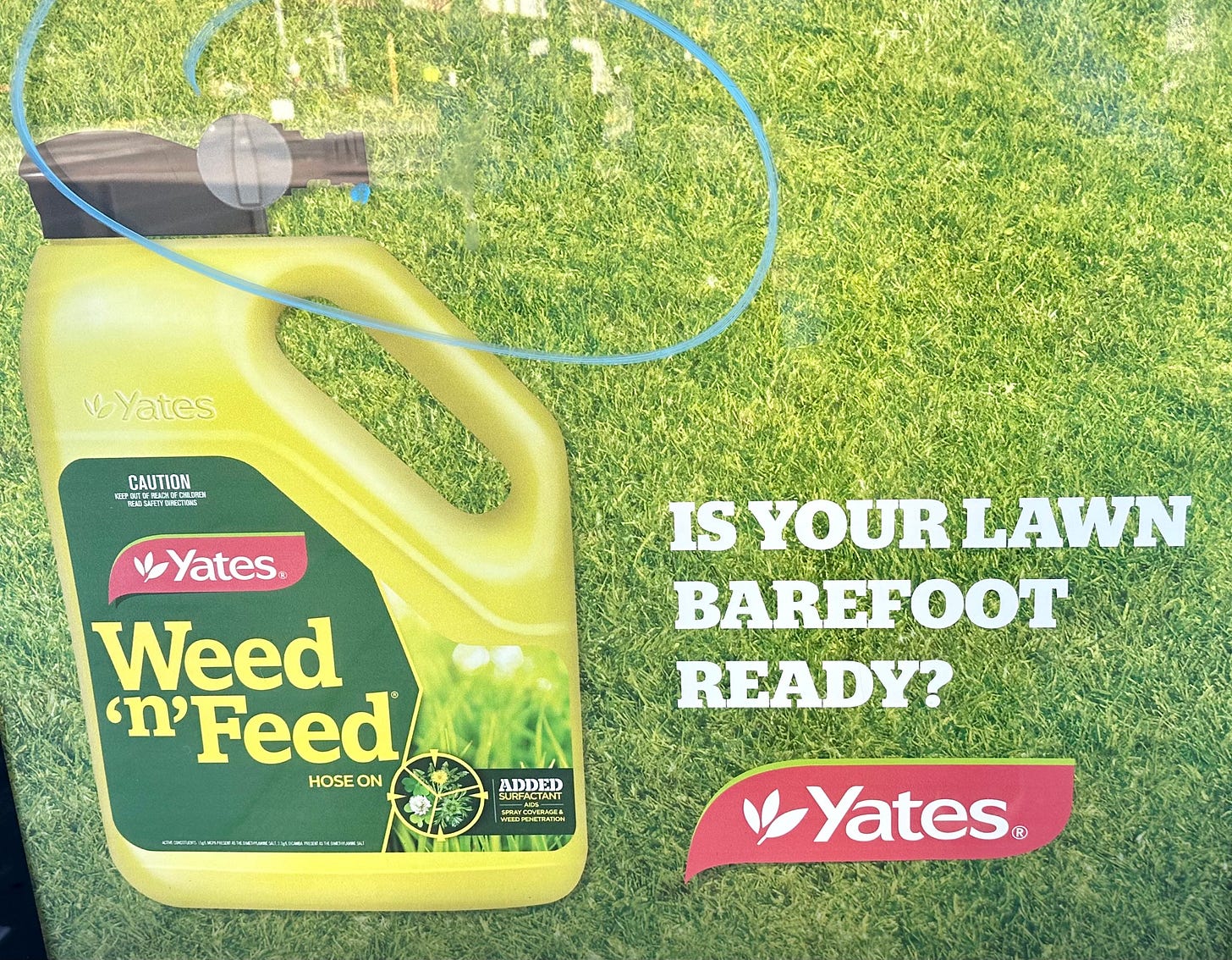Easy to miss, or is it?
Unravelling
Most people in the Anglosphere know who Russell Brand is.
If you do, you’ll have noticed his rapid unravelling, in the face of rape and sexual assault allegations. YouTube has stopped monetising his videos’ views, all broadcasters who’ve aired his shows are distancing themselves, and his management company has ditched him. All in the past two weeks.
You might say, “Well, about time. Brand is just the latest tall poppy (about) to be crushed under the steamroller of respectful relationships.” After all, Harvey Weinstein is in prison. Jeffrey Epstein is dead.
But, I’d maintain that Brand is different.
Why?
Brand was employed by an institution, the BBC, for years. The lesser issue is that that organisation permitted on-air content in 2008 that, even just 15 years later, is not just jaded, but unacceptably offensive. The bigger question is whether the BBC knew, throughout that entire period, that it was employing a person of bad character: someone who (some) women knew to avoid. And talked about openly. But, the biggest question of all, for BBC’s Controller and Board, is to what degree they are responsible for monitoring the social behaviour of their ‘talent’.
Yet this question doesn’t just apply to the BBC.
The same question is being asked right now of the NSW Education Department in Australia. Christopher Dawson, a one-time PE teacher, is now 74. He was convicted last month for carnal knowledge of one of his students, aged just 16, back in the 1980s.
Now, that was bad enough, but he was already serving a multi-decade sentence for the murder of his wife, Lynette. He eliminated her so that he could live with, and eventually marry, his ex-student (who became step-mother to his children).
Sordid, I know.
Again, Dawson’s individual actions pale into insignificance when we ask, as the courts will be asked, “What did the Education Department know of Dawson’s behaviour, were there more people like him, and what did they do about any of it? And, what is their responsibility for restitution, 40 years later?”
The Department’s response appears to be to treat Dawson, and others like him, as ‘free agents’ behaving outside accepted departmental norms. The students, they argue, engaged in consensual, not forced, sex. Both of those might be true, yet it leaves the biggest strategic question unanswered:
Q: What responsibility do organisations like yours have for the ‘on field’ and ‘off field’ behaviour of your “stars”?
It’s not rocket science
There’s a persistent meme that says, “We couldn’t build the pyramids today”. Or the Colosseum. But one that caught my eye was this: “We couldn’t build the Saturn V rocket today”.
This was the massive rocket that powered all of the Apollo missions from 1967 to 1973 and remains the only vehicle that’s taken humans beyond low earth orbit.
It turns out that it’s NOT true that we can’t build an equivalent rocket today. We have all the blueprints of the incredible F1 engine, for example. In fact, NASA even found an intact F1 in storage and disassembled and 3D scanned all the parts, to generate digital files.What IS true is that we’ve lost the artisanship that the Saturn rocket required. Take a look at these welds.
These were hand welded, after being assembled by hand by master machinists, and it’s the institutional knowledge about welding that has been lost. Those masters of their craft have died, or long retired, and no welders today can reproduce that work without years of practice and iteration.
I meet similar issues in my client organisations. Funded organisations tell me, “Government departments keep changing the guard. Nobody truly understands the programs they fund”. Government tells me, “Those we fund keep restructuring, and we have to keep re-teaching them what we’re seeking”.
Q: What active steps do you take to identify — and preserve — what you consider essential corporate knowledge?
Sensation
I’m in the middle of running a 3 day conference for health sector CEOs and non-executive directors, as well as government and other stakeholders. About 300 people in all.
One participant came to me at lunch today and said, “This is brilliant. It the first time I’ve felt we’re all playing on the same team. Just talking freely to people - and they’re all here - feels incredibly liberating”.
He went on to tell me who specifically he’d met with, and what they’d discussed.
Now, go back and re-read what he said.
The italicised words are what count - his feelings. , he’s right, by saying that the success on the sensation. And, the best collective communications (whether it’s a conference, a strategy workshop, or even advertising) are clear on the sensations they’re creating. Take a look at this ad on my local tram shelter, which shows the point I’m making.
You can, no doubt, feel the sensation of walking on well-tended grass. That’s actually what you’re buying, the feeling. Not the absence of weeds. Or even the grass itself. What the participants in the conference are buying is not the sessions of the conference, or the speakers, but the feeling of being part of something greater, and having free access to an array of influential people.
Q: How deliberately do you craft your products or services to create emotional value?
A conference is a great place to meet lots of people who tell me they’re enjoying reading 5MSM. You can let me know here, simply by clicking the heart below. I do appreciate it when you do.
And, look out for the unravelling around you. I predict there’ll be an avalanche of men (mostly) who’ll become personae non gratae, and whom their affiliated organisations will seek to distance themselves from.
See you next Friday,
Andrew




What I thought when I saw the Brand allegations is that they are just that: allegations.
...
Unless and until he has been convicted in a court of competent jurisdiction, they are not worth discussing.
The presumption of innocence, however, is well and truly passé in the current woke/PC zeitgeist.
...
The saturation media coverage will make it impossible to empanel an impartial jury. Sub judice contempt of court seems to be roundly ignored in such cases.
This media interest will, of course, shrink to vanishing point if Brand is tried and found not guilty.
...
Whether found guilty or not, Brand will suffer enormous, possibly ruinous, financial loss as a result.
He has already been subjected to extra-judicial punishment by the corporate sector, who seem determined to prevent him from earning a living.
...
From what I have seen over the past 10 years or so, no man charged with rape or sexual assault can expect a fair trial anywhere in the Anglosphere.
What they can expect is exculpatory evidence to be illegally witheld from the defence (witness Liam Allan, George Pell, Bruce Lehrmann and others).
...
And if his accusers, who presumably "have to be believed"* are found to be lying? Well, this has happened before, and to the best of my knowledge and belief, no female false accuser has ever been charged with perjury or making false statements to police. AFAIK, they have had their anonymity protected too.
...
* That is the only explanation I can find for unsubstantiated allegations, often of alleged behaviour going back decades, and denied by the accused, somehow constituting a prima facie case.